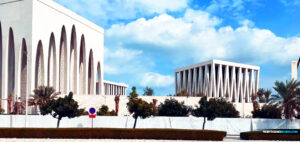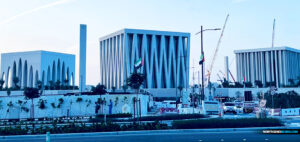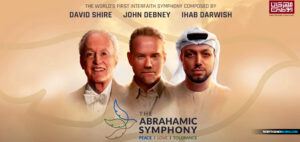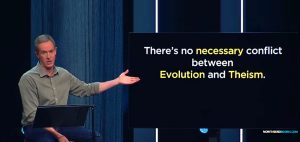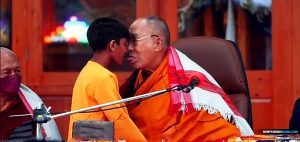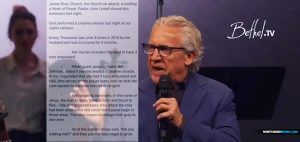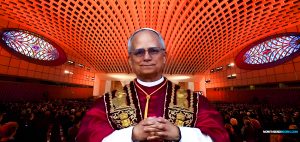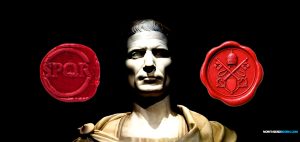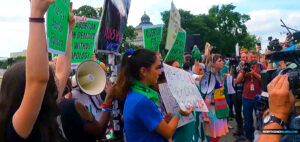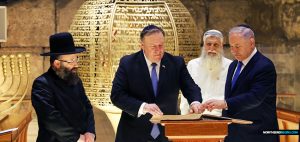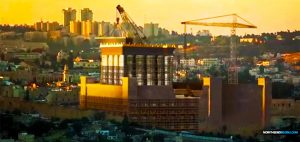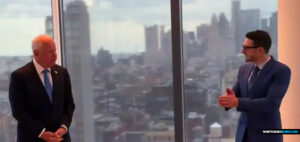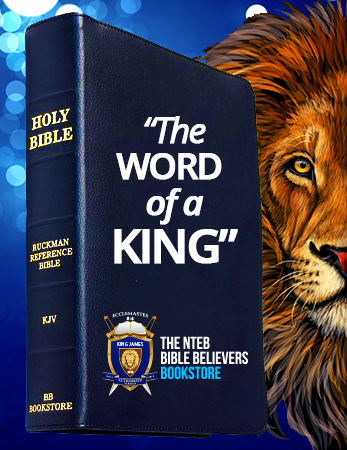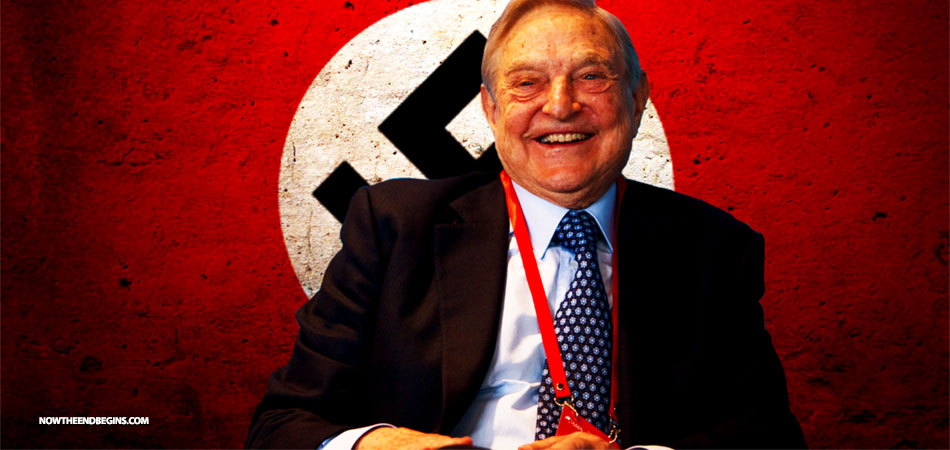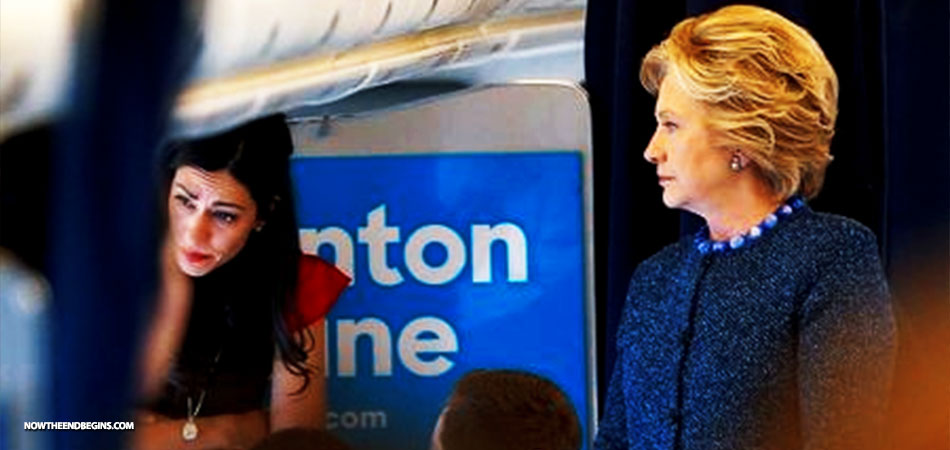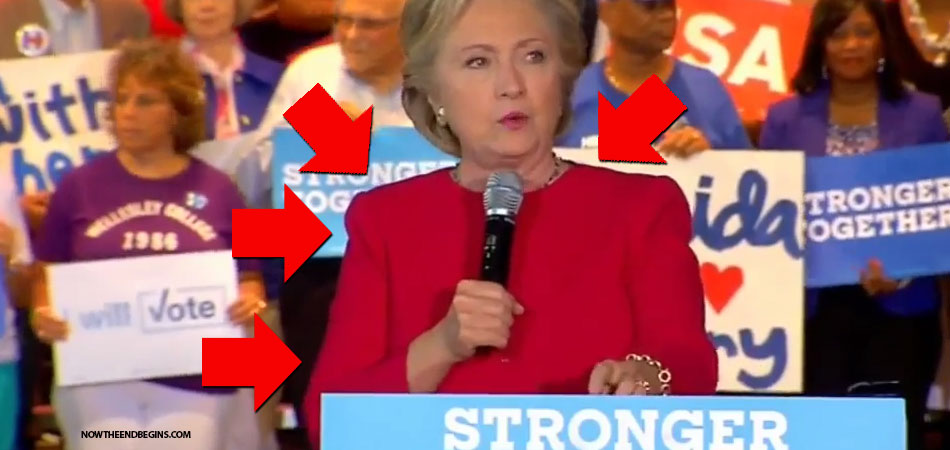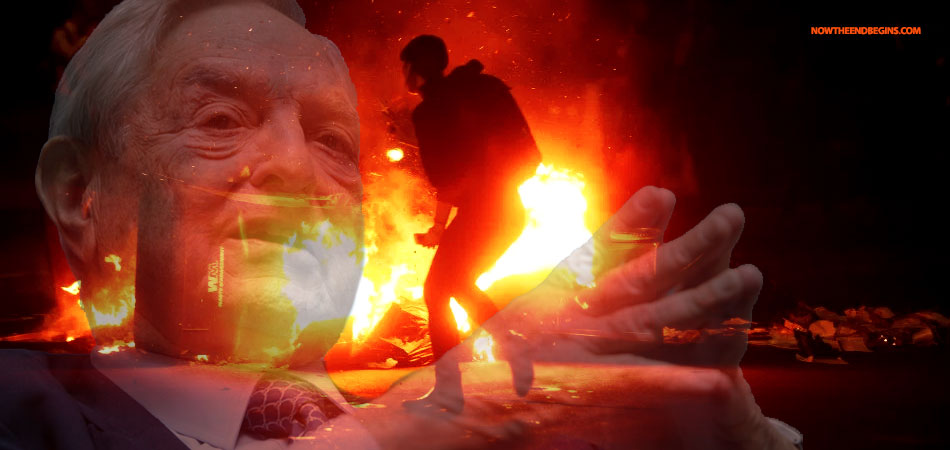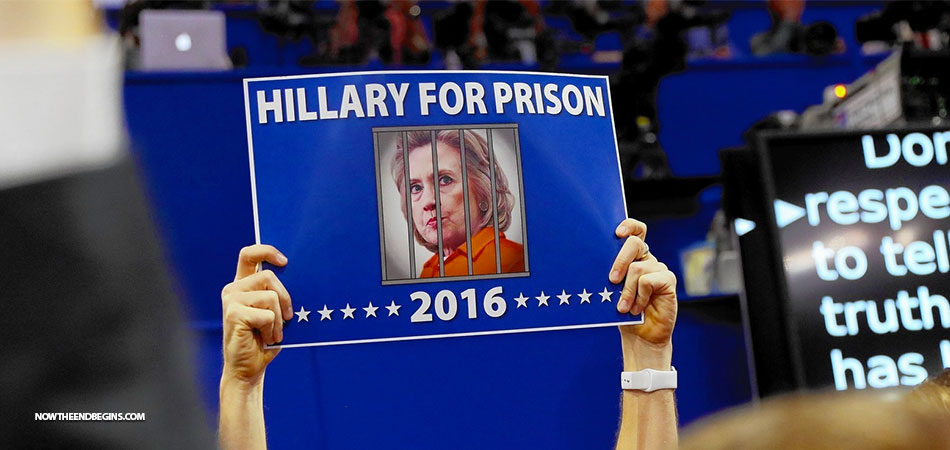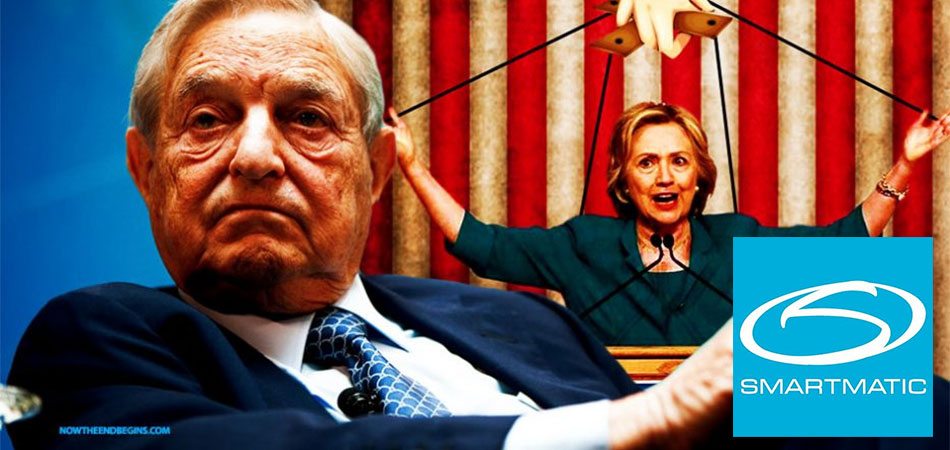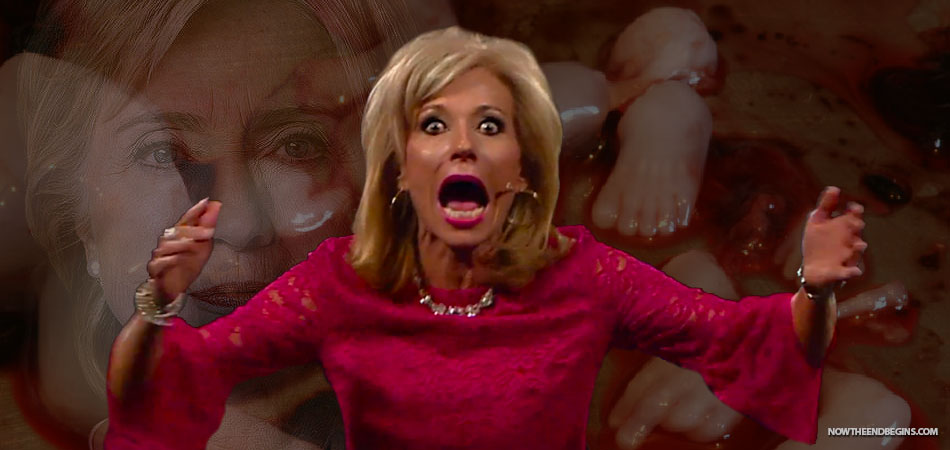End Times
Vatican Says The Catholic Church Is The Only True Church
In 2007, Pope Benedict XVI has reasserted the universal primacy of the Roman Catholic Church, approving a document released Tuesday that says Orthodox churches were defective and that other Christian denominations were not true churches.Benedict approved a document from his old offices at the Congregation for the Doctrine of the Faith that restates church teaching on relations with other Christians. It was the second time in a week the pope has corrected what he says are erroneous interpretations of the Second Vatican Council, the 1962-65 meetings that modernized the church.

Vatican upholds herself as the ONLY “true” church of Jesus Christ
“And it was given unto him to make war with the saints, and to overcome them: and power was given him over all kindreds, and tongues, and nations. And all that dwell upon the earth shall worship him, whose names are not written in the book of life of the Lamb slain from the foundation of the world.” (Revelation 13:7-8, KJV)
As we see the signs of time rapidly enfolding before us today, it becomes more clear that the enemy’s plan has long been played out by those in their camp. Puzzle pieces of Bible prophecies that are falling into place today have long been made ready by those who will be in the picture in the End Times.
The One World Religion will soon become a reality as one religious system slowly but boldly gathers the rest of the world under her wing. With the fast forward move of Ecumenism, where the Pope aims to reunite ALL of the world’s religion, it is becoming more clear today who will sit in leadership for the One World Religion.
In 2007, Pope Benedict XVI has reasserted the universal primacy of the Roman Catholic Church, approving a document released Tuesday that says Orthodox churches were defective and that other Christian denominations were not true churches.
Benedict approved a document from his old offices at the Congregation for the Doctrine of the Faith that restates church teaching on relations with other Christians.
It was the second time in a week the pope has corrected what he says are erroneous interpretations of the Second Vatican Council, the 1962-65 meetings that modernized the church.
Formulated as five questions and answers, the document is titled “Responses to Some Questions Regarding Certain Aspects of the Doctrine on the Church.”
It says although Orthodox churches are true churches, they are defective because they do not recognize the primacy of the Pope.
“It follows that these separated churches and communities, though we believe they suffer from defects, are deprived neither of significance nor importance in the mystery of salvation,” it said.
The document adds that Protestant denominations — called Christian Communities born out of the Reformation — are not true churches, but ecclesial communities.
“These ecclesial communities which, specifically because of the absence of the sacramental priesthood … cannot, according to Catholic doctrine, be called ‘churches’ in the proper sense,” it said.
The document is similar to one written in 2000 by the Pope — who was Cardinal Joseph Ratzinger at the time — that sparked an angry reaction from Protestant groups.
“I suspect there will be some reactions that are rather passionate,” said Raphaela Schmid, director of the Becket Institute, a group that advocates religious freedom. “I hope they will not be angry because we all try to understand about each other.”
The document is issued by Benedict’s successor in doctrinal matters, Cardinal William Levada, and endorsed by the Pope, said Reuters.
Pope still committed to Ecumenical Dialogues
The Rev. Sara MacVane of the Anglican Centre in Rome, said there was nothing new in the document.
“I don’t know what motivated it at this time,” she said. “But it’s important always to point out that there’s the official position and there’s the huge amount of friendship and fellowship and worshipping together that goes on at all levels, certainly between Anglican and Catholics and all the other groups and Catholics.”
The document said Orthodox churches were indeed “churches” because they have apostolic succession and that they enjoyed “many elements of sanctification and of truth.” But it said they lack something because they do not recognize the primacy of the pope — a defect, or a “wound” that harmed them, it said.
“This is obviously not compatible with the doctrine of primacy which, according to the Catholic faith, is an ‘internal constitutive principle’ of the very existence of a particular church,” the commentary said.
Despite the harsh tone of the document, it stresses that Benedict remains committed to ecumenical dialogue.
“However, if such dialogue is to be truly constructive, it must involve not just the mutual openness of the participants but also fidelity to the identity of the Catholic faith,” the commentary said.
Father Augustine Di Noia, undersecretary for the Congregation for the Doctrine of the Faith, said the document did not alter the commitment for ecumenical dialogue, but aimed to assert Catholic identity in those talks.
“The Church is not backtracking on ecumenical commitment,” Di Noia told Vatican radio.
“But, as you know, it is fundamental to any kind of dialogue that the participants are clear about their own identity. That is, dialogue cannot be an occasion to accommodate or soften what you actually understand yourself to be.”
Source – MSNBC

End Times
The Opening Ceremony Of The 2026 Winter Olympics Featured A Burning Cauldron With Everlasting Flames In The Middle Of The All-Seeing Eye In Hell

The opening ceremony for the 2026 Winter Olympics was ripped right from the pages of end times events laid out in the book of Revelation
The world just can’t help themselves, can they? At the opening ceremony to the 2026 Winter Olympics in Italy last night, what was intended to be a beautifully designed version of the ‘Olympic Cauldron’ representing the ‘eternal flame’ for the duration of the games was actually a hellish depiction of the all-seeing eye of Horus coming out from the eternal fires of Hell. Ever see ‘Stranger Things’? They created the Olympic Cauldron as the Demogorgon come to life for our entertainment.
“The same shall drink of the wine of the wrath of God, which is poured out without mixture into the cup of his indignation; and he shall be tormented with fire and brimstone in the presence of the holy angels, and in the presence of the Lamb:” Revelation 14:10 (KJB)
A massive triumphal arch, a blazing, suspended centerpiece. The entire scene drenched in blood-red light with fire raining down from the heavens like a victory celebration for something ancient, pagan, and proud. Whether the designers intended “the all-seeing eye” or not, the effect is the same: a global spectacle built on awe, fear, and worshipful attention—centered on fire. The very same Hell fire now being mocked and denounced by people like Kirk Cameron. Christian, wake up!

The modern world doesn’t merely tolerate darkness—it packages it. Stylizes it. Sells it as culture. Then tells you you’re “negative” or “conspiratorial” if you notice the tone. But Bible believers aren’t called to applaud the production. We’re called to reprove it. Reprove things like the wicked NFL Super Bowl and their Sodomite Half Time Show, and yes, the Turning Point All-American Halftime show promoted openly by Laodicean preacher Franklin Graham. It is nothing but wickedness everywhere you look, and that’s exactly as your King James Bible says it will be. Fill your pockets with gospel tracts and go out into the ‘highways and hedges’ and tell them about Jesus. Time is almost gone, make the most of it for the Lord, and get ready for the Judgment Seat of Christ. Amen? TO THE FIGHT!!!
Now The End Begins is your front line defense against the rising tide of darkness in the last Days before the Rapture of the Church
- HOW TO DONATE: Click here to view our WayGiver Funding page
When you contribute to this fundraising effort, you are helping us to do what the Lord called us to do. The money you send in goes primarily to the overall daily operations of this site. When people ask for Bibles, we send them out at no charge. When people write in and say how much they would like gospel tracts but cannot afford them, we send them a box at no cost to them for either the tracts or the shipping, no matter where they are in the world. We have a Gospel Billboard program. We are now broadcasting Bible studies, Podcasts and a Sunday Service 5 times a week, thanks to your generous donations. All this is possible because YOU pray for us, YOU support us, and YOU give so we can continue growing.
But whatever you do, don’t do nothing. Time is short and we need your help right now. The Lord has given us an open door with a tremendous ‘course’ for us to fulfill that will create an excellent experience at the Judgement Seat of Christ. Please pray for our efforts, and if the Lord leads you to donate, be as generous as possible. The war is REAL, the battle HOT and the time is SHORT…TO THE FIGHT!!!
“Looking for that blessed hope, and the glorious appearing of the great God and our Saviour Jesus Christ;” Titus 2:13 (KJB)
“Thank you very much!” – Geoffrey, editor-in-chief, NTEB
End Times
FUN FACT: It Is Alcohol That Is The Number #1 Cause Of Preventable Deaths Here In America Not Illegal Drugs Coming Over On Boats From Narcoterrorists

It is alcohol consumption and not illegal drug use that is the number #1 cause of preventable death that’s killing a massive number of Americans yearly
For decades we were told that the greatest threat to American life and liberty came from illegal drugs—cocaine, meth, fentanyl, heroin. And to be sure, those substances have destroyed countless lives. But as new national research continues to roll in, a shocking truth has emerged: the legal, government-sanctioned “social drink” is killing far more people than the substances our leaders claim to be waging war against. A message to President Trump – if you really want to stop the killing from drug use, ban the drug we call alcohol. Alcohol kills far more people than illegal drugs do.
“Who hath woe? who hath sorrow? who hath contentions? who hath babbling? who hath wounds without cause? who hath redness of eyes? They that tarry long at the wine; they that go to seek mixed wine. Look not thou upon the wine when it is red, when it giveth his colour in the cup, when it moveth itself aright. At the last it biteth like a serpent, and stingeth like an adder.” Proverbs 23:29-32 (KJB)
In this present Laodicean age, where pleasure is the new morality and self-indulgence is the national pastime, alcohol is quietly claiming lives at a rate that far surpasses illicit drug use. The world shrugs. The media yawns. And Christians—many of them—have learned to justify the very thing that is destroying their own households. So as far as I’m concerned, this whole national dialogue about Narcoterrorists killing Americans with illegal drugs doesn’t hold a candle to the millions of kids who are taught to become alcoholics at MLB and NFL stadiums.
A Legal Substance With Illegal-Level Destruction
Recent mortality data reveals that alcohol-related deaths have skyrocketed, overtaking illicit drugs as a major cause of preventable death in the United States. The numbers include liver disease, alcohol-induced organ failure, drunk-driving fatalities, alcohol-fueled violence, and deaths tied to long-term addiction. Yet unlike illegal drugs, alcohol enjoys full cultural acceptance, full government protection, and full corporate marketing power behind it. There is no stigma. No shame. No national warning campaign. Alcohol is celebrated in commercials, sports events, holidays, weddings, even in some so-called “church fellowships.” No Christian should ever drink it, and no preacher should ever stay silent about it.
Because the Bible is not silent. “Wine is a mocker, strong drink is raging: and whosoever is deceived thereby is not wise” (Proverbs 20:1). In God’s preserved Book, alcohol is never neutral, never harmless, and never “safe in moderation.” Its end is always destruction. America used to know that when preachers like DL Moody and Billy Sunday stood in the pulpit.
Big Alcohol: A Multibillion-Dollar Industry Built on Broken Homes
If Big Pharma profits from addiction, Big Alcohol might be even worse. Billions of dollars flow through an industry whose survival depends on one thing: repeat customers. The light drinker is not their business. Their real money comes from people they’ve addicted who can’t stop.
And what do we get in return?
- Tens of thousands of deaths every year
- Millions of broken marriages
- Abuse, violence, poverty, and imprisonment
- Children raised in instability
- Generational trauma that repeats itself like a curse
This is not an accident. This is the fruit of a system that has normalized what God has condemned. But we were warned: “At the last it biteth like a serpent, and stingeth like an adder.” (Proverbs 23:32)
Why Christians Are Losing the Battle Before It Even Starts
The saddest part is not what the world is doing with alcohol—it’s what the Church is doing. In this lukewarm Church Age, professing Christians defend alcohol more strongly than they defend the Bible! They insist that “Jesus made wine,” ignoring the scriptural distinctions between fermented and unfermented wine. They argue that drinking is fine “as long as I don’t get drunk,” as if voluntarily consuming a mind-altering substance is some kind of Christian liberty badge. It isn’t.
This is not liberty. It is bondage masquerading as freedom.
The apostle Paul writes, “And be not drunk with wine, wherein is excess; but be filled with the Spirit” (Ephesians 5:18). Notice the contrast: one spirit empties you of discernment; the Holy Spirit fills you with it. Alcohol reduces, diminishes, and destroys. The Spirit edifies, strengthens, and sanctifies. But you don’t know that because your pastor doesn’t preach that.
America isn’t merely drunk on alcohol. She is drunk on self-justification, convinced she can handle what is handling her.
When Noah emerged from the ark into a brand-new world, the very first recorded sin was drunkenness and alcohol-induced shame (Genesis 9:20-24). When God describes the fall of Babylon in Revelation 17–18, the imagery again involves intoxication—nations made drunk with spiritual fornication. Alcohol is not just a social issue; it is a spiritual picture of a people dulled, numbed, and desensitized right before judgment falls. America is not dying because of what is illegal, but because of what is celebrated. “But the end of all things is at hand: be ye therefore sober, and watch unto prayer.“1 Peter4:7 (KJB)
Now The End Begins is your front line defense against the rising tide of darkness in the last Days before the Rapture of the Church
- HOW TO DONATE: Click here to view our WayGiver Funding page
When you contribute to this fundraising effort, you are helping us to do what the Lord called us to do. The money you send in goes primarily to the overall daily operations of this site. When people ask for Bibles, we send them out at no charge. When people write in and say how much they would like gospel tracts but cannot afford them, we send them a box at no cost to them for either the tracts or the shipping, no matter where they are in the world. We have a Gospel Billboard program. We are now broadcasting Bible studies, Podcasts and a Sunday Service 5 times a week, thanks to your generous donations. All this is possible because YOU pray for us, YOU support us, and YOU give so we can continue growing.
But whatever you do, don’t do nothing. Time is short and we need your help right now. The Lord has given us an open door with a tremendous ‘course’ for us to fulfill that will create an excellent experience at the Judgement Seat of Christ. Please pray for our efforts, and if the Lord leads you to donate, be as generous as possible. The war is REAL, the battle HOT and the time is SHORT…TO THE FIGHT!!!
“Looking for that blessed hope, and the glorious appearing of the great God and our Saviour Jesus Christ;” Titus 2:13 (KJB)
“Thank you very much!” – Geoffrey, editor-in-chief, NTEB
Christian Persecution
Street Preacher In England Warned By Police Office That The John 3:16 Scripture On The Back Of His Van Could Be Considered ‘Hated Speech’ Crime

Street preacher Mick Fleming in England was recently warned by police over the John 3:16 Bible verse he placed on the back of his van that it could be considered ‘hate speech’
I was browsing my news feed this morning when I came across this article on a street preacher in England, Mick Fleming, who lives in a van and ministers through his Church On The Street ministry. I have never heard of this guy before, know almost nothing about him, but I got saved on John 3:16, so anytime I see an article about that verse it always catches my attention.
“For God so loved the world, that he gave his only begotten Son, that whosoever believeth in him should not perish, but have everlasting life.” John 3:16 (KJB)
The world is changing rapidly, the spirit of Antichrist is rising, and this lost world is preparing itself from the coming 7-year kingdom. England is a nation that have embraced Socialism, Islam and the LGBTQ, kind of sounds like America, doesn’t it? Any nation who embraces those things inevitably will, at some point, turn again the Bible and the people who believe the Book. Don’t think it could happen here? That’s what every people group thinks right before it happens. Use what freedom you have left, Christian, while you still have it to use. That’s the memo.
Police officer warns Prince William’s vicar friend that John 3:16 Bible verse on his van ‘could be considered hate speech
FROM THE DAILY MAIL UK: Pastor Mick Fleming has been warned by a police officer that the bible verse on the back of his van ‘could be considered hate speech’. Speaking on his YouTube channel, Mick said: ‘I just thought “wow”. I just wondered what people watching this thought.
‘It’s not to argue but where have we moved to as a country where a bit of Christian scripture on the back of a van can be seen as hateful or spiteful? Maybe society is moving to a place where they don’t want faith-based people sat around a table in discussion with them… for me it’s an integral message of how real change is possible.’
The law says it could be considered hate speech if the wording is threatening or inciting hatred based on protected characteristics such as religion or sexual orientation.
Mick insisted that he has no plans to remove it as he asked his viewers to give their opinions on whether the scripture could be deemed as offensive.
He said: ‘I am not going to change it, I am going to leave it one but I thought it quite interesting about how it can be perceived. I have never thought about that being something spiteful or hateful in any shape or form. I wondered what you thought – do you think people would take offence to that, and if they did, why?’
Displaying bible verses publicly is generally lawful in the UK. But the law says it could be considered hate speech if the wording is threatening or inciting hatred based on protected characteristics such as religion or sexual orientation. After recently giving up all of his belongings, Mick now lives in a campervan which has the bible verse John 3:16 printed on the back.
The verse reads: “For God so loved the world, that he gave his only begotten Son, that whosoever believeth in him should not perish, but have everlasting life.”
Now the priest has revealed he was approached by a police officer while at a petrol station in Lancashire, who told him ‘the writing could be seen as hate speech in the wrong context’. Despite being told he wasn’t there to arrest Mick, the officer said that ‘if someone reported it police would investigate, and he could end up in trouble’. READ MORE
Church on Wheels: Could this Bible verse be seen as hate speech?
Now The End Begins is your front line defense against the rising tide of darkness in the last Days before the Rapture of the Church
- HOW TO DONATE: Click here to view our WayGiver Funding page
When you contribute to this fundraising effort, you are helping us to do what the Lord called us to do. The money you send in goes primarily to the overall daily operations of this site. When people ask for Bibles, we send them out at no charge. When people write in and say how much they would like gospel tracts but cannot afford them, we send them a box at no cost to them for either the tracts or the shipping, no matter where they are in the world. We have a Gospel Billboard program. We are now broadcasting Bible studies, Podcasts and a Sunday Service 5 times a week, thanks to your generous donations. All this is possible because YOU pray for us, YOU support us, and YOU give so we can continue growing.
But whatever you do, don’t do nothing. Time is short and we need your help right now. The Lord has given us an open door with a tremendous ‘course’ for us to fulfill that will create an excellent experience at the Judgement Seat of Christ. Please pray for our efforts, and if the Lord leads you to donate, be as generous as possible. The war is REAL, the battle HOT and the time is SHORT…TO THE FIGHT!!!
“Looking for that blessed hope, and the glorious appearing of the great God and our Saviour Jesus Christ;” Titus 2:13 (KJB)
“Thank you very much!” – Geoffrey, editor-in-chief, NTEB
-
George Soros9 years ago
Proof Of George Soros Nazi Past Finally Comes To Light With Discovery Of Forgotten Interview
-
Election 20169 years ago
DEAD POOL DIVA: Huma Abedin Kept Those Hillary Emails That The FBI Found In A Folder Marked ‘Life Insurance’
-
Election 20169 years ago
Crooked Hillary Campaign Used A Green Screen At Today’s Low Turnout Rally In Coconut Creek FL
-
George Soros9 years ago
SORE LOSER: George Soros Declares War On America As Violent MoveOn.Org Protests Fill The Streets
-
Donald Trump9 years ago
Donald Trump Will Be 70 Years, 7 Months And 7 Days Old On First Full Day In Office As President
-
Headline News9 years ago
If Hillary Is Not Guilty, Then Why Are Her Supporters Asking Obama To Pardon Her? Hmm…
-
Election 20169 years ago
WikiLeaks Shows George Soros Controlling Vote With 16 States Using SmartMatic Voting Machines
-
End Times9 years ago
False Teacher Beth Moore Endorses The Late Term Partial-Birth Abortion Candidate Crooked Hillary
































